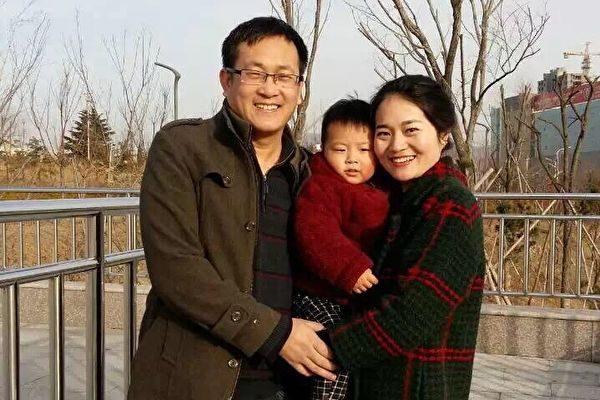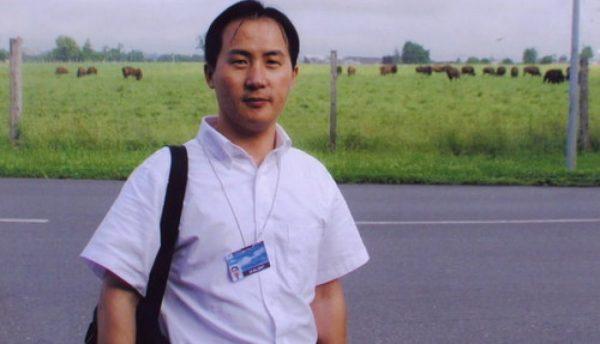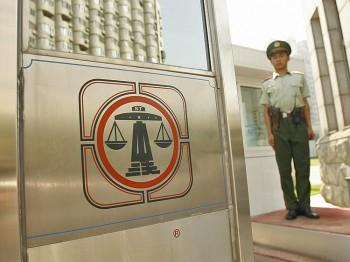It’s been eight years since the Chinese Communist Party carried out a massive wave of arrests on July 9, 2015, incarcerating hundreds of human rights lawyers and activists in what became known as the 709 Crackdown. Today, victims of the Crackdown still face oppression by the regime—even after they have been released from jail.
Recently, some of the lawyers and activists in Beijing spoke up about their situations, and how the Chinese regime continues to bring misery to their lives and homes.
Wang Quanzhang Made Homeless
Lawyer Wang Quanzhang finally reunited with his wife and his then 7-year-old son in April, 2020, after nearly five years of imprisonment.However, police surveillance has accompanied the family—and even their child’s daily journey to school—since his release.
Wang, a defender of political activists, victims of land expropriation, and adherents of the persecuted spiritual group Falun Gong, received a four-and-a-half-year sentence on charges of “subverting state power”—a euphemism for activities not endorsed by the communist regime.
On April 26, the landlord cut off their utilities, and the Wang family was forced to relocate to a local inn.

Li Wenzu, the lawyer’s wife, posted on Twitter on the morning of April 29 that over a dozen police officers followed them that day when they left their home. A plainclothes police officer advised her: “Why bother with all this? Wouldn’t it be nice to go back to Shandong?”
Her husband is a native of Shandong, but practiced law in Beijing.
On May 2, the family moved to Beijing’s Hi Inn. About 10 minutes after they booked in, the service desk employee came and asked them to leave. The police subsequently agreed to their staying for one night.
Li Heping Met With Repeated Evictions
Lawyer Li Heping was sentenced to prison for “inciting subversion of state power”—another catch-all charge that Beijing often uses against dissidents. He was known for defending political dissidents and vulnerable groups in China, including underground Christians, victims of forced eviction, and Falun Gong practitioners.Li was released in May 2017.
Wang Qiaoling, Li Heping’s wife, said the family has experienced repeated forced eviction by the regime since the 709 Crackdown in 2015.
She explained that although their apartment leases were signed for one or two years, the landlord would then often ask them to move out before the lease expired.
For instance, a landlord had verbally agreed to renew their lease before its expiration in September, 2021.
However, while the landlord was away on business overseas, he entrusted an agent to tell Li and his family to move, saying that the landlord was under a lot of pressure.

Along with the repeated evictions, “there are at least four vehicles and over a dozen plainclothes police by the entrance” each time they leave their home, Li’s wife told the Chinese edition of The Epoch Times on May 2.
They are followed whenever they step outside the apartment.
Both the stalking and eviction have escalated recently, she said. “Actually, we don’t really understand why.”
The Displaced Activist
Ji Feng, a participant in the 1989 Tiananmen Square student protest, was recently evicted from his apartment by local police.Ji’s hometown was in Guizhou, southwest China.
Mr. Ming, a friend of Ji Feng, told The Epoch Times on May 3 that Ji is now forced to live on the streets of Beijing, with his belongings temporarily stored at a friend’s place.
“But the police even had the local community staff visit his friend to make sure he did not stay there,” Ming said.
Ming believes that the influence of the human rights lawyers and activists threatens the legitimacy of the communist regime.
Embarrassment
Lawyer Gao (a pseudonym) is also a victim of repeated eviction by the police.He explained that the authorities never came to him directly, but worked against his family behind the scenes. Such insidious practices make renting extremely hard for human rights lawyers in Beijing.
“One landlord wanted me to move, saying that I endangered state security, and that I was unpatriotic,” he said.
Gao said the evictions are just a means to force them to leave Beijing.
“Lawyers and dissidents are the frequent focus of foreign embassies in Beijing. That makes the regime extremely uneasy,” he said.




